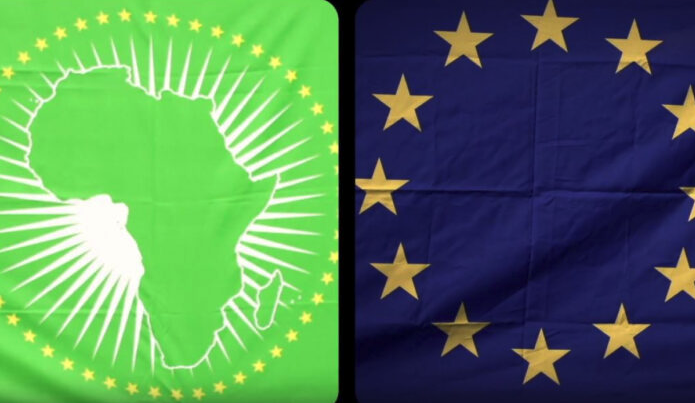
European Union commits €82.5 million to support Africa’s digital and space technology
The European Union (EU) would be supporting six new projects across multiple sectors under the Pan-African Programme. The political and economic union has earmarked €82.5 million to support the six projects, which involve the use of digital technologies and space applications.
The six projects span multiple sectors such as air transport, digitalisation, regional integration and trade, and sustainable resource management. Namely, the six projects the EU would be supporting (alongside their percentage of the fund) are:
- African Continental Free Trade Area (AfCFTA) (38.7%);
- Food security and ecosystem monitoring using space technology (30.3%);
- Sustainable management and governance of natural resources using geoscientific data (9.6%);
- Digitalisation and knowledge sharing (9.6%);
- Safer aviation infrastructure using satellite systems (6%);
- Modernisation of air navigation systems (5.4%).
Commenting on the announcement made in December 2020, Jutta Urpilanien, EU’s Commissioner for International Partnerships, said: “The versatile use of satellite technology not only contributes to building resilient ecosystems and maintaining sustainable land use but also safer air transport”.
“Together with our African partners, we are harnessing digital technologies to prioritise the climate and sustainable economic growth”, Urpilainen said.
Between 2018 and 2020, the EU provided €400 million for the Pan-African Programme, which was launched in 2014. The Programme supports the EU cooperation with the African Union (AU) on a wide range of projects, including grants for universities, capacity building for the AU Commission and pan-African institutions, and trans-regional projects.
The AfCFTA
Out of the €82.5 million, the EU would expend €32 million to support the trade protocols negotiations, implementation and establishment of AfCFTA. This would bring the EU’s total support for the AfCFTA, between 2014 and 2020, to €32 million.
Initiated in 2018, the AfCFTA aims to increase intra-African trade by creating a single free market for goods and services of all 54 African countries that ratified the agreement. It took effect on January 1, 2021. By the number of participating members, AfCFTA is the largest free trade area agreement second only to the World Trade Organisation. The AfCFTA serves 1.2 billion people and a continent of $3 trillion (€2.4 trillion) gross domestic product. It is worthy of note that African countries started trading on the basis of the AfCFTA the same day the United Kingdom and EU finalise their breakup.
Food security and ecosystem monitoring using space technology
The EU said €25 million of the funding will be used to used the second phase of the Global Monitoring for Environment and Security (GMES). During its second phase, GMES aims to support regional economic communities, African governments, scientific communities, and African citizens to make effective use of Earth Observation data in to sustainably manage natural resources and tackle climate change.
During phase one of the , between 2017 and 2021, the EU contributed €26.5 million. And across 47 African countries, access to and processing of data increased, through the installation of stations, development of applications, and capacity building.
Sustainable management and governance of natural resources using geoscientific data
This project, the Pan-African Support to Geological Sciences and Technology Africa — EU Partnership (PanAfGeo), will increase access to geoscientific data and improve the capacity of the African Geological Surveys. And the EU would be allocating €8 million to it between 2021 and 2023.
Under the first phase of the project, with a budget of €9 million, more than 1,000 people from 49 African countries were trained in geoscientific knowledge and skills such as mineral resource assessment, artisanal and small-scale mining, geohazards, and geo-heritage. The second phase of PanAfGeo will contribute to sustainable management and better governance of natural resources in Africa.
Digitalisation and knowledge-sharing
The EU will support the recently launched Africa-Europe Digital for Development Hub with €8 million. The Hub will facilitate knowledge-sharing and structured dialogue between African and the EU partners to boost the digital transformation, which is one of EU’s key geopolitical priorities.
Safer aviation infrastructure using satellite systems
The EU will allocate €5 million to accelerate the Single African Air Transport Market (SAATM). This programme will support the African Civil Aviation Commission and African states in implementing the single aviation market. The funds will be invested in satellite systems for safer aviation infrastructure.
Modernisation of the air navigation system
The sixth project the EU would be supporting is the modernisation of air navigation systems. An additional €4.5 million would be contributed to the third phase of the Satellite Navigation in Africa Support Programme, starting in 2021 for 48 months.
The previous phases of the programme, between 2014 and 2020 with a budget of €7.7 million, have contributed to building a long-term strategy for flight safety using satellite-based technology.
The objective of the is to support the development of air transportation in Africa through the modernisation of air navigation systems. For instance, in developing Global Navigation Satellite System and implementing European Geostationary Navigation Overlay Services across Africa.
